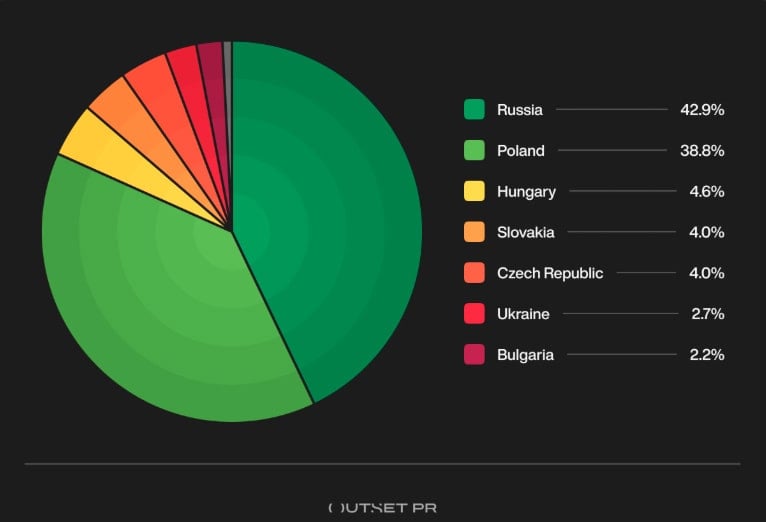A significant development is unfolding in the world of digital assets, directly impacting public service. Pennsylvania’s HB1812 proposes a sweeping Pennsylvania crypto ban for its public officials, aiming to prevent potential conflicts of interest. This bill, if passed, would reshape how elected and appointed individuals in the state interact with the rapidly evolving cryptocurrency market.
What Does the Pennsylvania Crypto Ban Bill Propose?
House Bill 1812 introduces strict new regulations concerning digital asset ownership for those in public office. The legislation targets a broad range of crypto holdings, including Bitcoin, other cryptocurrencies, NFTs (Non-Fungible Tokens), stablecoins, and various related financial products. This comprehensive approach ensures that the ban covers the diverse landscape of digital assets.
The core of the proposal is clear: public officials and their immediate family members would be prohibited from holding these assets. This measure seeks to ensure transparency and uphold public trust by removing any perceived financial incentives tied to digital currencies. It aims to prevent situations where personal financial interests could influence policy decisions.
Who is Affected by This Proposed Pennsylvania Crypto Ban?
The scope of HB1812 is quite extensive. It applies not only to public officials themselves but also extends to their family members. This broad definition aims to close potential loopholes where assets might be held indirectly through spouses or dependents.
Key requirements outlined in the bill include:
- Mandatory Divestment: Officials must divest all prohibited digital assets within two months of taking office. This ensures a rapid transition away from crypto holdings, minimizing any potential for conflict from the outset.
- Post-Service Restriction: The ban extends for one year after an official leaves public service. This provision aims to prevent immediate re-engagement with crypto that might be influenced by past decisions or insider knowledge gained during their tenure.
- Severe Penalties for Violations: Violations of this proposed Pennsylvania crypto ban could lead to serious consequences, including potential jail time, as reported by U.Today. This highlights the bill’s serious intent to enforce compliance and deter non-adherence.
Why is a Pennsylvania Crypto Ban Being Considered Now?
The primary motivation behind HB1812 appears to be the prevention of conflicts of interest. As cryptocurrencies become more integrated into the global financial system and their market capitalization grows, policymakers face new ethical challenges. Public officials could potentially make decisions that directly or indirectly benefit their personal crypto holdings.
Consider a scenario where an official owns a significant amount of a particular cryptocurrency. If that official is involved in drafting or voting on legislation that impacts crypto regulation, a clear conflict of interest could arise. This bill seeks to eliminate such possibilities, fostering greater integrity and impartiality in governance. It aligns with a broader trend of increased scrutiny on financial disclosures for public servants.
What are the Potential Implications of This Policy?
A Pennsylvania crypto ban of this nature carries significant implications, both for public officials and the broader digital asset community. For officials, it means a forced divestment from a growing asset class that many see as a legitimate and innovative investment opportunity. It could impact their personal financial planning and investment strategies.
On the other hand, proponents argue it significantly strengthens public trust. It sets a precedent that public service demands a clear separation from assets that could influence policy decisions, ensuring that decisions are made for the public good, not personal gain. However, critics might argue it’s an overreach, potentially discouraging talented individuals with expertise in emerging technologies from seeking public office in Pennsylvania.
Challenges and Debates Surrounding the Bill
Implementing such a comprehensive ban presents several challenges. Defining “family members” and “related financial products” precisely can be complex, potentially leading to ambiguities. Furthermore, monitoring compliance in the decentralized and often pseudonymous world of cryptocurrency poses unique difficulties for enforcement agencies.
The debate around this bill also touches on individual financial freedom versus public accountability. While the intent to prevent corruption is laudable, some may view it as an infringement on personal investment choices. This Pennsylvania crypto ban proposal will undoubtedly spark robust discussions among lawmakers, industry experts, and the public, weighing the benefits of integrity against potential restrictions on individual rights.
In conclusion, Pennsylvania’s HB1812 represents a bold move to address potential ethical dilemmas arising from public officials holding digital assets. While aiming to bolster public trust and prevent conflicts of interest, its comprehensive nature and strict penalties will likely lead to extensive debate. The outcome of this proposed Pennsylvania crypto ban could set an important precedent for other states and even national governments grappling with similar issues concerning digital asset ownership among public servants.
Frequently Asked Questions (FAQs) About the Pennsylvania Crypto Ban
- What is HB1812?
HB1812 is a proposed bill in Pennsylvania that seeks to ban public officials and their immediate family members from owning or trading cryptocurrencies, NFTs, stablecoins, and related financial products. - Why is this ban being proposed?
The primary reason is to prevent potential conflicts of interest, ensuring that public officials make decisions based on public good rather than personal financial gain from digital asset holdings. - Who exactly would be affected by this ban?
The ban would affect all public officials in Pennsylvania, including elected and appointed individuals, as well as their spouses and dependent children. - What are the penalties for violating the proposed ban?
Violations of HB1812 could lead to severe consequences, including potential jail time, as highlighted by reports. - Are there similar bans in other states or countries?
While not widespread, some jurisdictions and entities globally are exploring or implementing policies regarding public officials’ digital asset holdings to address similar ethical concerns.
What are your thoughts on this significant legislative move? Share this article with your network and let’s spark a broader conversation about ethics in public service and the evolving landscape of digital assets!
To learn more about the latest crypto market trends, explore our article on key developments shaping Bitcoin institutional adoption.




